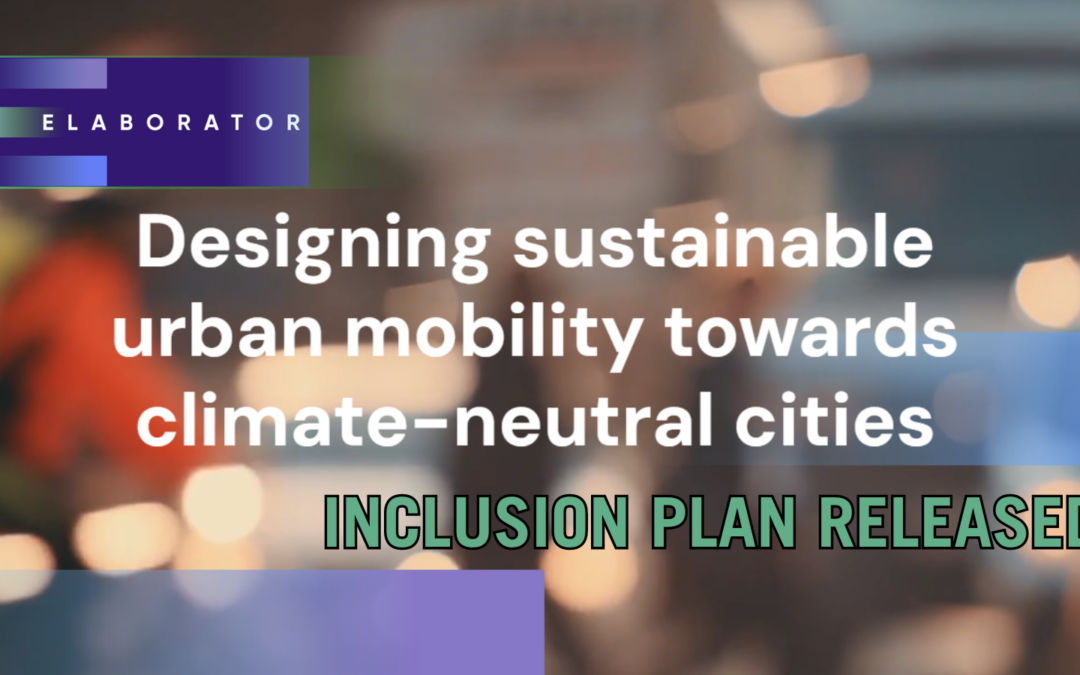ELABORATOR, a leading initiative in the realm of sustainable urban mobility, has released its highly anticipated Inclusion Plan, signalling a pivotal step forward in the quest for inclusive and climate-neutral cities. This comprehensive document outlines strategies to foster inclusivity at every stage of urban planning and mobility innovation.
The 3-year ELABORATOR project, involving 38 partners, is using a holistic approach for planning, designing, implementing and deploying innovations and interventions for sustainable urban mobility. These may include smart enforcement tools, space redesign and dynamic allocation, shared services, and integration of active and green modes of transportation.
The interventions will be demonstrated in several cities across Europe, starting with six Lighthouse Cities of Milan (Italy), Copenhagen (Denmark), Helsinki (Finland), Issy-les-Moulineaux (France), Zaragoza (Spain) and Trikala (Greece); and six Follower Cities including Lund (Sweden), Liberec (Czech Republic), Velenje (Slovenia), Split (Croatia), Krusevac (Serbia) and Ioannina (Greece). Each city will be implementing one or more innovative ‘interventions’ to improve urban mobility, with the aim of demonstrating how to implement the intervention and showcase their effectiveness to ‘Observer’ Cities.
By prioritizing the needs of marginalized communities, ELABORATOR is spearheading a paradigm shift towards people-centred mobility.
The release of the Inclusion Plan marks a significant milestone in the project, providing a roadmap for integrating inclusivity into research, innovation, and urban development activities from inception.
Key highlights from the Inclusion Plan include:
1. Guiding principles for inclusive mobility: The plan underscores the importance of inclusive practices in driving sustainable, safe, and affordable urban mobility. It advocates for inclusive language in all communications, understanding diverse mobility patterns, and redefining the concept of Vulnerable Road Users to encompass all marginalized groups affected by current mobility planning practices.
2. City-level challenges and solutions: Through international training sessions led by partner URBANA, ELABORATOR gained invaluable insights into city-level perspectives on inclusivity and gender in urban planning. These findings inform strategies to address interconnected social and environmental challenges, with a focus on empowering vulnerable communities.
3. Evaluation and dissemination: The Inclusion Plan advocates for a qualitative approach that considers human experiences and social contexts, laying a solid foundation for future efforts in inclusive urban mobility. It serves as a practical guide for partners and stakeholders, offering a framework for evaluation and improvement.

















